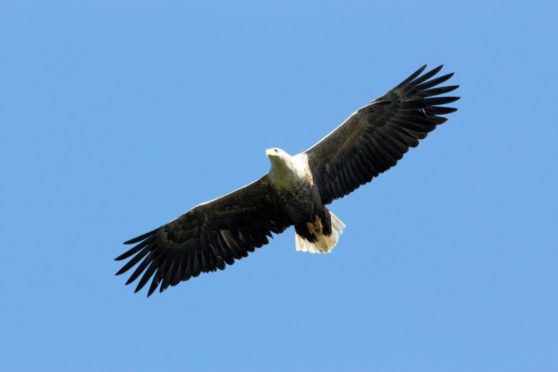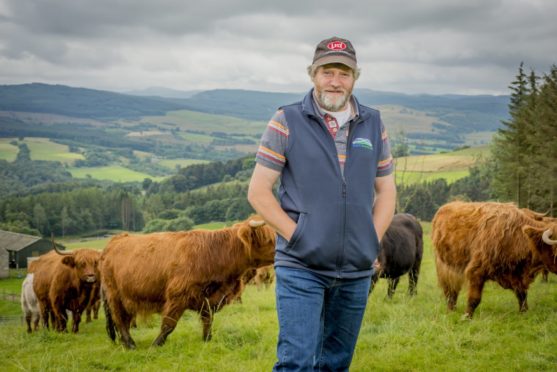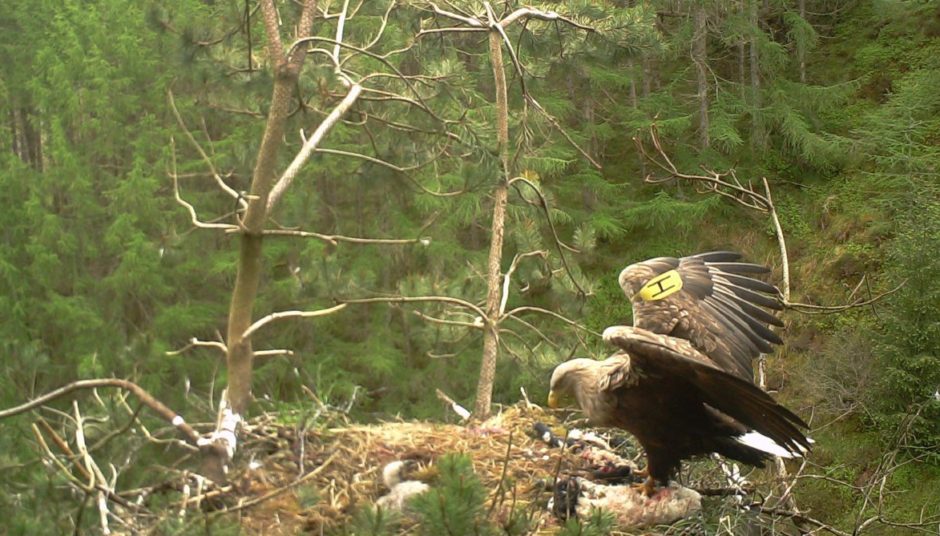Farm leaders have called for urgent action to help prevent sea eagles from attacking and killing livestock.
The chief of Scotland’s farming union, NFU Scotland (NFUS), says not enough is being done to protect livestock from white-tailed sea eagles.
NFUS president, Martin Kennedy, said some farmers and crofters had endured decades of predation by eagles, including new-born lambs being killed and carried away by the birds, and urgent action was needed to address the problem.
He criticised delivery of the White-tailed Eagle Action Plan – led by the Scottish Government’s environment agency NatureScot and developed in conjunction with the National Sea Eagle Stakeholder Panel, which includes NFUS.
“When the joint agreement with NatureScot and NFU Scotland was reached in 2014 promising action on white-tailed eagles, most farmers and crofters put their faith in it and were optimistic that through careful management of the white-tailed eagle population there would be a balanced, sustainable environment to enable and support both agricultural activity as well as the white-tailed eagles,” said Mr Kennedy.
“Our members are frustrated by the lack of progress to date, particularly in relation to the management of the birds – we need urgent delivery and implementation of key actions.”
He said work through the plan had increased understanding of the birds’ predation behaviour, and trials of mitigation measures on monitor farms had had limited success.
“NatureScot now needs to apply this knowledge in actively trying to reduce the level of predation on some of the impacted farms and crofts,” added Mr Kennedy.
He accused some members of the stakeholder group of “repeatedly glossing over the fact, based on hard evidence from agreed findings, that in places white-tailed eagles continue to cause significant agricultural damage through predation” and said he had written to NatureScot demanding action.
“We are looking to NatureScot to demonstrate genuine commitment to making the necessary progress for farmers and crofters living with white-tailed eagles and we remain determined to support where we can,” added Mr Kennedy.
Among the union’s demands are calls for the creation of a framework of support and control measures to help disperse, or remove, birds where failure to maintain population numbers results in preventable loss to livestock or wildlife.
It also wants farmers and crofters to have more access to licensable actions including nest tree removal, egg manipulation, adult removal and relocation, and, as a last resort, humanely killing problem birds.
A NatureScot spokeswoman said an extended White-tailed Eagle Action Plan, covering the next three years, was due to be published shortly.
She said: “We understand the concerns of farmers and crofters, and continue to work closely with them, and a range of stakeholders at the local and national level, to offer management support through the Sea Eagle Management Scheme and to trial management techniques which can help reduce these negative impacts.”


